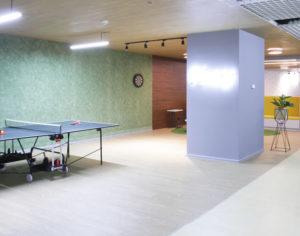
By Stephanie Licata
As I write this, I am sitting in the customer lounge of my popular import brand dealership, one I’ve been doing business with for the past decade. The lounge is comfortable. There is free WiFi.
However, as I look around, no one in this lounge actually wants to be here. There are a few kids who are about to lose it, and a few more parents who will lose it if their kids lose it. One little girl is begging to leave and go to Chick-fil-A. I want to urge her to think bigger (and healthier), but I digress.
I am here because I received a promotional email. Today is the “last day” to stop in and take advantage of this offer I received about turning in my leased car early. The gentlemen who greeted me was nice enough, not pushy, and I’m waiting to see if my car is “good enough” to be eligible for the current promotion.
I thought it would be the perfect setting to write about what it takes to be an extraordinary dealership.
Does it mean you have the sleekest showroom floor or cushiest lounge? Does it mean you have the best sales people and the most profits? What is the secret sauce?
We tend to focus on a lot of the externals to determine what we call extraordinary. Don’t get me wrong – these are very important. Dealership cleanliness and comfort matter to customers. Hitting your numbers counts.
We put a lot of emphasis on customer satisfaction, and rightly so. Customers, repeat customers and positive referrals are critical to a dealership’s success. But we are compelled to look deeper, to answer the question, “Who is your first customer?”
The Employee
When we don’t connect employee and customer satisfaction we are missing a really big boat that sailed away without us a long time ago. So where does employee satisfaction start?
In a recent interview Gallup Chairman and CEO Jim Clifton was asked critical questions about the new book he co-authored with Gallup’s Chief Workplace Scientist, Jim Harter, “It’s the Manager.”
According to this Amazon best-seller, “A staggering 70% of the variation between great workplace engagement and lousy workplace engagement can be explained just by the quality of the manager or team leader.” What does that mean? Clifton puts it pretty plainly:
“Miserable employees ruin customer relationships…Lousy managers create miserable employees who create negative business outcomes.”
It’s a vicious cycle. You’ve probably been part of one or two in your professional career.
Ending the Cycle
Being an extraordinary dealer is actually the key to having an extraordinary dealership. Extraordinary dealers are open to new ideas, research, staggering business analytics and they don’t ignore it all in favor of outdated management principles.
Extraordinary dealers know the absurdity of the following outdated leadership statements. They are even revolted by them because they are committed to something bigger:
- “People should just be grateful they have a job!”
- “Do your job. It’s that simple. Don’t want to? There’s the door!”
- “If you don’t like it, you don’t have to work here.”
- “If you think you can do my job better, go right ahead.”
Excuse me. The 1960s just called. They want their management principles back. There is a saying to “ride the horse in the direction it is going.” I promise; no horses are headed for the last century.
If you want to do more than succeed in this century, you’ve got to be brave enough to divorce yourself from antiquated ideas that are just plain uninformed.
So what does the mean for the dealer? According to Clifton, purpose-driven work environments are what the incoming workforce wants. Gallup has put out staggering research spanning the past several years to support that people want more than just a paycheck. “Great leaders have a higher purpose than just profit. Increasing profit should be assumed, but it is not the mission,” Clifton assures.
 And before you go putting a ping-pong table and beer taps in the break room, Clifton is pretty clear on what employees want as far as their own career. “What they really want is career development. They want the same thing their team leader wants from them – they want to improve. They want someone to take a real interest in their development.”
And before you go putting a ping-pong table and beer taps in the break room, Clifton is pretty clear on what employees want as far as their own career. “What they really want is career development. They want the same thing their team leader wants from them – they want to improve. They want someone to take a real interest in their development.”
One of the most important messages Clifton shares is the commitment to shift from BOSS to COACH. For more about how to do this, read my previous article here.
Establishing a coaching culture is critical to developing the extraordinary dealership where employees want to work and customers want to buy. This doesn’t happen overnight. There must be a conscious and planned effort to develop managers to be extraordinary as well. Before you promote the top sales person to GSM, remember that sales results have little to no correlation to actual leadership ability.
If you are committed to being an extraordinary dealer who leads an extraordinary dealership, start a conversation with DCG Consulting. Our programs and services help to transform culture, develop leaders and improve productivity and profitability from the inside out. Schedule a complimentary consultation here.
I bet you are wondering what happened at the dealership today. Special thanks to the down-to-earth gentleman who didn’t try to talk me into a deal that didn’t make sense for me (or anyone else) financially. No pressure means I’m definitely coming back.












